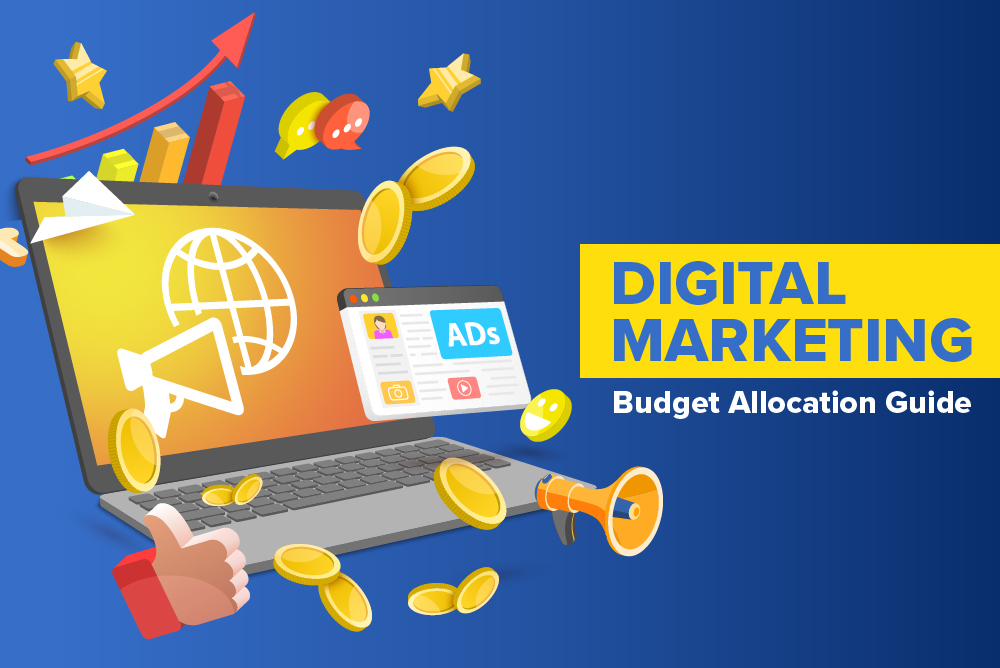Digital marketing and affiliate marketing are two distinct but interconnected aspects of the online marketing landscape. Digital marketing encompasses a broad spectrum of strategies aimed at promoting products or services using digital channels such as search engines, social media, email, and websites. It involves building a brand presence, engaging with audiences, and driving conversions through various online tactics.
On the other hand, affiliate marketing is a specific type of performance-based marketing, where businesses reward affiliates for driving traffic or sales to their websites through the affiliate’s marketing efforts. While digital marketing represents the overarching strategy of online promotion, affiliate marketing operates within this framework as a performance-driven subset, leveraging partnerships to expand reach and enhance revenue streams. Understanding the nuances of each is crucial for crafting a comprehensive online marketing strategy that maximises impact and ROI.
Key Differences Between Digital Marketing And Affiliate Marketing
1. Definition
Digital marketing is a broad term encompassing the promotion and sale of products through diverse online channels. Companies leverage the internet’s reach to engage with audiences and drive sales. On the other hand, affiliate marketing revolves around promoting other businesses’ products in exchange for a commission. It’s a collaborative approach where individuals, known as affiliates, play a crucial role in expanding the reach of products through strategic marketing efforts.
2. Reach
In terms of reach, digital marketing employs a multitude of advertising strategies suitable for various devices. It has become a ubiquitous concept adapting to diverse consumer interactions with digital platforms. In contrast, affiliate marketing operates under the broader umbrella of digital advertising, focusing specifically on commissions. Affiliates strategically market products to their audiences, aiming to drive sales and earn commissions in return.
3. Competencies
Success in digital marketing requires proficiency in diverse areas such as SEO, social media, and analytics. Digital marketers navigate through various components to create a cohesive online presence. On the other hand, affiliate marketing places a premium on relationship-building and persuasion skills. Affiliates must effectively convey the value of the products they promote and persuade their audience to make a purchase, emphasising a different set of competencies compared to digital marketing.
4. Ownership and conduct
In terms of ownership and conduct, the fundamental distinction between digital marketing and affiliate marketing lies in the level of control and autonomy. Digital marketing allows businesses or product owners to conduct their promotional activities directly, leveraging various online channels. This approach provides a high degree of control over the marketing strategy. In contrast, affiliate marketing is exclusively conducted by third parties, emphasising a collaborative model where affiliates promote products on behalf of others, relying on established partnerships for mutual benefit.
5. Components and focus
Digital marketing involves a comprehensive approach with three main components: the product, the digital channel, and the customer. This holistic perspective considers every element from product creation to customer engagement and the platforms used. On the other hand, affiliate marketing simplifies the components to three main entities—the affiliate marketer, the customer, and the product owner. This streamlined structure highlights the collaborative nature of affiliate marketing, where affiliates play a pivotal role in promoting and selling products for a commission.
6. Goals and incentives
The goals and incentives in digital marketing and affiliate marketing diverge in their focus. Digital marketing typically aims at broader objectives such as increasing website visitors and enhancing brand recognition. It seeks to build a strong online presence. In contrast, one of the primary draws of affiliate marketing is the potential for a rapid accumulation of commissions from successful product sales. The financial incentive in affiliate marketing is tied directly to the performance of the affiliates in driving sales, providing a more direct and transactional motivation.
7. Strategies and tools
Digital marketing employs a diverse range of strategies and tools, including SEO, content marketing, data analysis, and video marketing. The approach is multifaceted, adapting to the evolving landscape of online promotion. In contrast, affiliates in affiliate marketing master digital marketing strategies to earn commissions on product sales. The emphasis here is on maximising exposure to a target market and effectively utilising digital channels to drive sales for the promoted products.
8. Tasks and skill set
The tasks and required skill sets in digital marketing encompass a broad spectrum, including research into customer needs, advertising, sales, result evaluation, and refinement. Success in digital marketing demands expertise in various areas such as SEO, content marketing, and data analysis. Conversely, affiliate marketing focuses on a key task—promoting goods or services in exchange for a financial incentive. The skill set required for affiliate marketing overlaps with that of digital marketing but places a specific emphasis on persuasive and direct response copywriting to drive conversions effectively.
Understanding The Dynamics Of Digital Marketing

Digital marketing is a comprehensive strategy aimed at reaching potential buyers and promoting products through digital mediums, including the Internet, mobile devices, and email. In the modern era, where brand awareness and recognition are of paramount importance, digital marketing plays a crucial role in facilitating these processes. The term encompasses a range of operations, each designed to enhance a brand’s online presence and engage with target audiences effectively.
SEO
One integral component of digital marketing is Search Engine Optimisation (SEO), which focuses on boosting a website’s visibility in Search Engine Results Pages (SERPs). This strategic approach aims to attract a larger and more targeted audience. SEO comprises three main subcategories: on-page SEO, off-page SEO, and technical SEO. By optimising these aspects and using some of the best free SEO tools, digital marketers can improve a website’s ranking on search engines, ensuring it is more easily discovered by potential customers.
Social media marketing
Social media marketing (SMM) involves leveraging platforms like Facebook, Twitter, Instagram, and Pinterest to increase web traffic and strengthen an organisation’s online profile. Tools such as Hubspot facilitate marketers in coordinating and planning content distribution across multiple channels. Through engaging content, interactions, and strategic campaigns, digital marketers harness the power of social media to connect with their audience, build brand loyalty, and drive traffic to their digital assets.
Pay-per-click advertising
Another avenue within digital marketing is Pay-Per-Click (PPC) advertising, commonly utilised on platforms like Google or Facebook. Setting up a PPC campaign involves advertisers paying only when someone clicks on their ads, providing a cost-effective way to get the word out about digital content. PPC ads allow for targeted exposure, ensuring that marketing budgets are efficiently allocated to reach specific demographics or user segments, maximising the impact of the advertising spend. This strategic approach, facilitated by digital marketing or advertising channels, ensures that businesses can precisely tailor their messaging to engage with their desired audience, optimising the effectiveness of their promotional efforts.
Navigating The World Of Affiliate Marketing
Affiliate marketing is a distinctive type of marketing where participants, known as “affiliates,” engage in promoting the goods and services of other businesses in exchange for financial compensation. The mechanism of affiliate marketing relies on the use of affiliate links, which enables marketers to track and monitor their sales performance.
Driving traffic and sales
The primary function of affiliate marketing is to drive traffic towards direct advertising and sales methods. To be effective, affiliate marketers need to possess a deep understanding of both their target audience and the value proposition of the products they are promoting. This understanding is essential for crafting compelling content that not only attracts attention but also persuades the audience to take desired actions, ultimately leading to sales.
Key components of affiliate marketing
- Influence and audience reach: Affiliate marketing subtly influences consumers, often without their explicit awareness. Bloggers and influential individuals play a pivotal role in introducing products to new audiences, seamlessly integrating the promoted content into the consumer’s experience. Remarkably, affiliate marketing typically incurs no additional costs for the consumer beyond the final product price.
- Affiliate marketers as publishers: Affiliates are commonly referred to as publishers because they disseminate information about products through channels where they enjoy a monopoly or preeminence. Affiliate marketers strategically choose products that align with the interests and preferences of their reachable audience, leveraging their platform to promote and endorse the offerings.
- Product owners: The product owner, whether an individual or a company, is responsible for creating and selling the product. While they may not directly participate in the product’s promotion, they play a crucial role in the affiliate marketing ecosystem by compensating affiliates with commissions for each product sold through an affiliate link. This commission-based model incentivises affiliates to actively drive sales and contribute to the product’s success in the market.
Navigating The Digital And Affiliate Marketing Landscape With First Page

Understanding the differences between digital marketing and affiliate marketing is vital for businesses seeking a comprehensive online strategy. While digital marketing encompasses a broad spectrum of promotional activities aimed at reaching and engaging target audiences, affiliate marketing operates within this framework, relying on strategic partnerships to drive sales.
For businesses in Singapore, the services of First Page, a reputable digital marketing company can be instrumental in navigating these intricacies. We can offer a suite of services, including SEO, Google Ads, Facebook Ads, and more, tailored to enhance a brand’s online presence and drive measurable results. By leveraging the expertise of our digital marketing experts, businesses can effectively navigate the dynamic landscape of digital marketing, ensuring a strategic and impactful approach to online promotion.

















